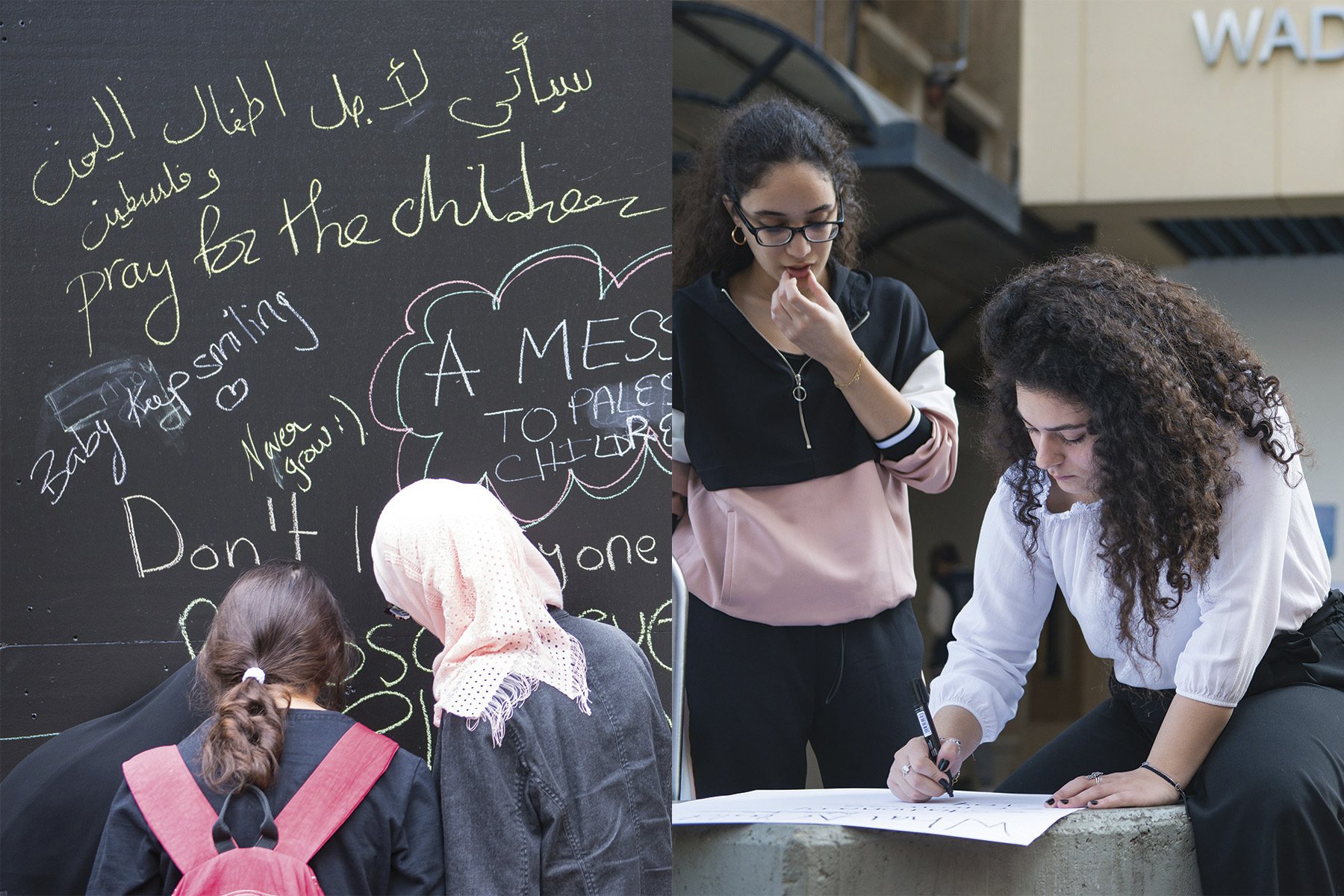Our Society’s Health: Wired to Serve
More in this issueThe lesser-known deeds of social responsibility at LAU and their long-term impact.
According to a study by LAU’s Department of Institutional Research and Assessment (DIRA), the university contributed $897 million to the Lebanese economy in Academic Year 2015-2016. Its regular contributions to society, however, are a little more difficult to put a figure on.
Similar to corporate social responsibility – the form of self-regulation increasingly popular among businesses – university social responsibility (USR) involves responding to social, economic and environmental issues to reflect an ethically driven philosophy at the institution.
While sifting through literature on social responsibility last year for her MBA thesis, Dania Saad came to two distinct conclusions: Whereas corporate social responsibility is relatively commonplace in Lebanon, USR – in a formalized sense – is not. In fact, “USR globally – not just in Lebanon – is understudied, with very limited literature on the topic,” wrote Saad, who is also LAU’s lead career guidance counselor.
Saad’s second insight was that LAU, through its faculty, students, staff and alumni, is already undertaking so many USR efforts that it is difficult to keep track. Financial aid, for one example, reflects the university’s commitment to equal learning opportunities in that it covers more than 45 percent of the student body with at least one form of assistance, amounting to over $35 million a year. In addition, there is the work of the Outreach and Civic Engagement (OCE) unit, student clubs and departmental events, and a host of courses that teach community building. “At LAU, we do it all innately, without any formal framework,” Saad says.
One such example is a recent book published by LAU Professor of Arabic 34 Literature Latif Zeitouni, who decided to focus “on the responsibility of the writer toward his readers,” and subsequently the society at large, when it comes to publishing literature reviews. The result was a book that serves as a guide on methodology and ethical standards. “You can write to entertain people or you can choose to write in a different manner,” Zeitouni explains. “You’re not living in a vacuum. You have an emotional and intellectual responsibility toward the society to which you belong.”
In another initiative, a group of LAU translation majors focused on the dearth of easily accessible literature on feminism in Arabic. The students translated dozens of online articles from English to Arabic to narrow the gender knowledge gap and shed light on noteworthy women. The Edit-A-Thon, which took place last spring, was organized by UN Women, among other international and local bodies.
“Our faculty at LAU are widely involved with civil society outside the university gates – which presents us, as students, with infinite possibilities for activism,” says Hoda Hilal, one of the translation students who took part. Now an alumna working at LAU’s Strategic Communications Department, she says that the project helped her gain real-life translation experience, while benefitting a larger cause.
Wider-known initiatives have become a staple of university life at LAU, such as building close ties with nonprofit organizations, conducting food and clothing drives for those in need, adhering to sustainable and accessible designs across campuses, and advocating for women’s rights in Lebanon and the region.
In fact, LAU’s emphasis on USR goes all the way back to the university’s founding as the first school for girls in the Ottoman Empire – well before the concept of institutional responsibility was born. Saad notes that whereas universities typically influence the society and the economy they are in through their inherent daily operations, LAU has opted to embed civic engagement into its current mission statement and practices – even in its academic offerings, where her study lists 40 courses with content related to social responsibility, ethics and sustainability across all seven schools.
Vice President for Student Development and Enrollment Management Elise Salem agrees. “Social responsibility is in our DNA. Faculty members embed it in their lectures every day, while students stand for causes they feel most strongly for through activism and research, and some alumni have turned those into a career,” she says.
“Students, faculty and staff have become wired to integrate helping society into what they do,” notes Saad, adding a major research finding: “Students tend to better associate, identify with and grow loyalty toward their university based on their perception of the socially responsible programs available.”
That is why, she argues, if these “considerable… social responsibility efforts get formalized into one entity, they would place LAU at the forefront of socially responsible institutions in Lebanon and the region.”
